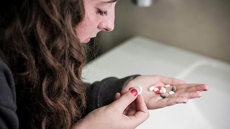Think twice before blaming parents, teachers or even children for their less interest in the classroom.
A new research suggests their genes may play the key role if children are not motivated enough to do better in school.
The study of more than 13,000 twins from six countries found that 40 to 50 percent of the differences in children's motivation to learn could be explained by their genetic inheritance from their parents.
"We found that there are personality differences that people inherit that have a major impact on motivation. That does not mean we do not try to encourage and inspire students, but we have to deal with the reality of why they're different," said study co-author Stephen Petrill, professor of psychology at The Ohio State University.
The researchers thought that the children's shared environment -- such as the family and teachers that they had in common -- would be a larger factor than genetics.
Instead, the researchers found that almost half the difference between twins in motivation could be explained by genetics.
About the same percentage could be explained by what is called the twins' non-shared environment - for example, differential parenting or a teacher that one twin has but not the other.
Only about 3 percent could be explained by their shared environment, such as their common family experience.
"We had pretty consistent findings across these different countries with their different educational systems and different cultures. It was surprising," Petrill, pointed out.
The study involved separate studies of twins aged nine to 16 in Britain, Canada, Japan, Germany, Russia and the United States.
The findings appeared in the journal Personality and Individual Differences.





